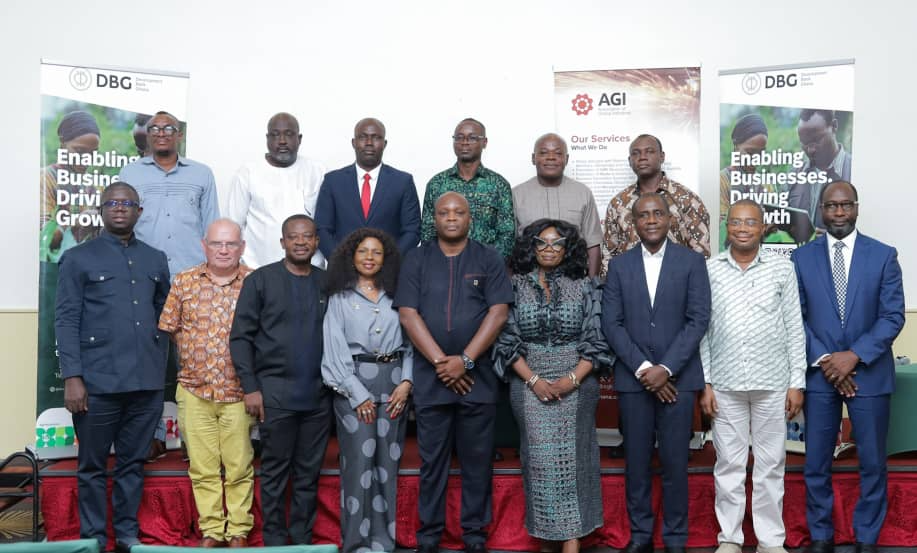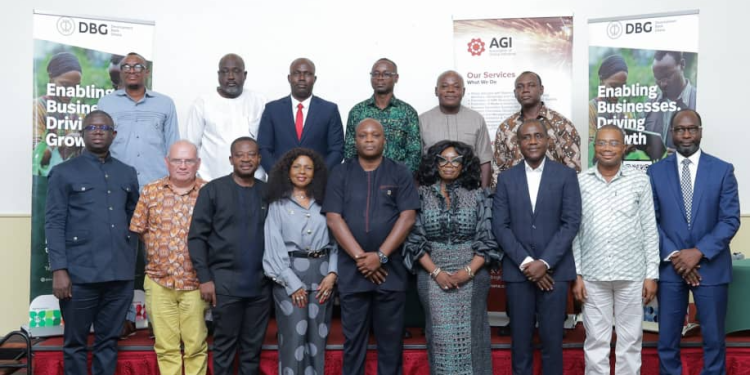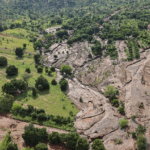
Ghana’s textile and garment sector, once a key driver of industrial employment, has received a significant boost as Development Bank Ghana (DBG) and the Association of Ghana Industries (AGI) convened key stakeholders to chart a path for its revitalisation.
The dialogue, held at the Alisa Hotel in North Ridge, Accra on May 29, under the theme “Revamping Ghana’s Textiles and Garment Sector – The Challenges, Pitfalls and Opportunities”, brought together senior policy-makers, financial institutions, development partners and industry leaders to lay out a practical roadmap for growth.
Once employing over 25,000 people in the 1970s, the sector has witnessed a sharp decline in its workforce, dropping to around 6,000 by 2020 due to trade liberalisation and an influx of cheap imports. But DBG sees this downturn not as an end, but a moment to act.
“We recognise this decline not as a conclusion, but as a call to action,” said DBG Chief Executive Officer, Dr Randolph Nsor-Ambala. “DBG stands at the forefront of Ghana’s development agenda—not merely as a financier, but as a long-term driver of structural transformation. Through partnerships, policy alignment and inclusive finance, we are laying the groundwork for a competitive and resilient economy.”
Discussions at the forum focused on the structural weaknesses facing the sector, including unregulated imports, inconsistent customs enforcement, and fragmented incentive schemes. Participants agreed that a suite of reforms is urgently needed to restore the industry’s competitiveness.
AGI President, Dr Humphrey Kwesi Ayim Darke, urged the government to introduce a consistent, export-oriented incentive regime.
“Manufacturers are ready to invest, but they need clear and predictable rules,” he remarked.
To support the industry’s turnaround, DBG announced several targeted initiatives:
- A nationwide feasibility study to map the entire textiles and garments value chain — from raw material sourcing to final production.
- Identification of five investor-ready, bankable projects, in collaboration with Participating Financial Institutions (PFIs).
- A comprehensive capacity needs assessment, to guide the development of technical assistance for both manufacturers and financial institutions.
These interventions will form the foundation of DBG’s forthcoming sector action plan, combining data, finance, and capacity-building to deliver measurable industrial transformation.
Further, DBG and AGI plan to consolidate the forum’s outcomes into a policy brief featuring draft regulations, enforcement strategies and proposed investment incentives. These recommendations will feed into an industry action framework that offers long-term finance and practical support across the value chain.
Delivering a keynote address, Chief Executive Officer of Sleek Garments Export Limited, Dr Nora Bannerman, urged stakeholders in Ghana’s garment and textiles industry to shift from a mindset of competition to one of collaboration, stressing that passion, ambition, and unity are more critical than trade agreements or external factors.
Dr Bannerman called for a renewed focus on building a cohesive and well-structured ecosystem that supports growth across the value chain.
“It is all about ambition and passion. It’s not so much about whether or not we have trade agreements that could be taken away from us — the market opportunities are there,” she said. “Everyone in this sector has an opportunity, from the fashion designer to the photographer. Our challenge is how to collaborate and stop seeing each other as competitors — it’s a huge challenge here.”
Dr Bannerman described the garments and textiles sector as “very simple and straightforward”, noting that what is needed are infrastructure, equipment, skilled workers, and access to markets. She called on stakeholders to remain focused and clear-eyed in their discussions about how to move the industry forward.
Experts at the forum anticipate that successful execution will lead to expanded wax-print production in Tema, increased cut-and-sew capacity in Accra’s industrial hubs, and a broader shift in Ghana’s industrial policy towards labour-absorbing value chains.
Participants left the event with renewed optimism, a clear timeline for action, and a shared belief that a renaissance of Ghana’s textile industry is not only possible, but within reach.
About Development Bank Ghana (DBG)
Development Bank Ghana is a state-owned wholesale financial institution established to provide long-term capital, stimulate economic growth, and strengthen the capacity of small and medium-sized enterprises.
It is aligned with the UN Sustainable Development Goals and integrates Environmental, Social, and Governance (ESG) principles into its strategy. DBG is supported by international partners including the World Bank, the European Investment Bank, KfW, and the African Development Bank. Visit www.dbg.gov.gh for more information.
About the Association of Ghana Industries (AGI)
The Association of Ghana Industries is Ghana’s foremost private sector advocacy organisation, established in 1957. It promotes industrial development through policy engagement, capacity-building, and market development. AGI continues to serve as the collective voice of industry and works to create a supportive environment for manufacturing and enterprise growth.
DISCLAIMER: The Views, Comments, Opinions, Contributions and Statements made by Readers and Contributors on this platform do not necessarily represent the views or policy of Multimedia Group Limited.
DISCLAIMER: The Views, Comments, Opinions, Contributions and Statements made by Readers and Contributors on this platform do not necessarily represent the views or policy of Multimedia Group Limited.
- President Commissions 36.5 Million Dollars Hospital In The Tain District
- You Will Not Go Free For Killing An Hard Working MP – Akufo-Addo To MP’s Killer
- I Will Lead You To Victory – Ato Forson Assures NDC Supporters
Visit Our Social Media for More




